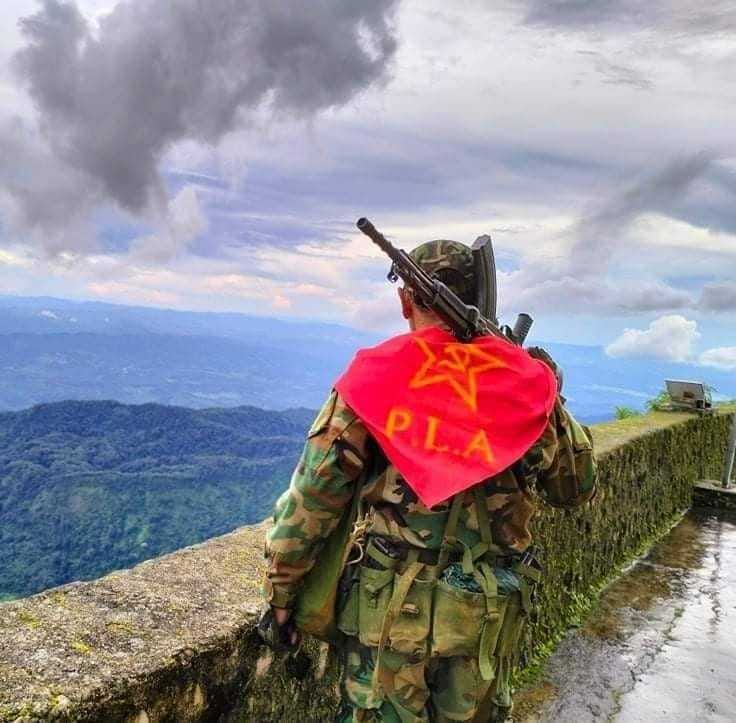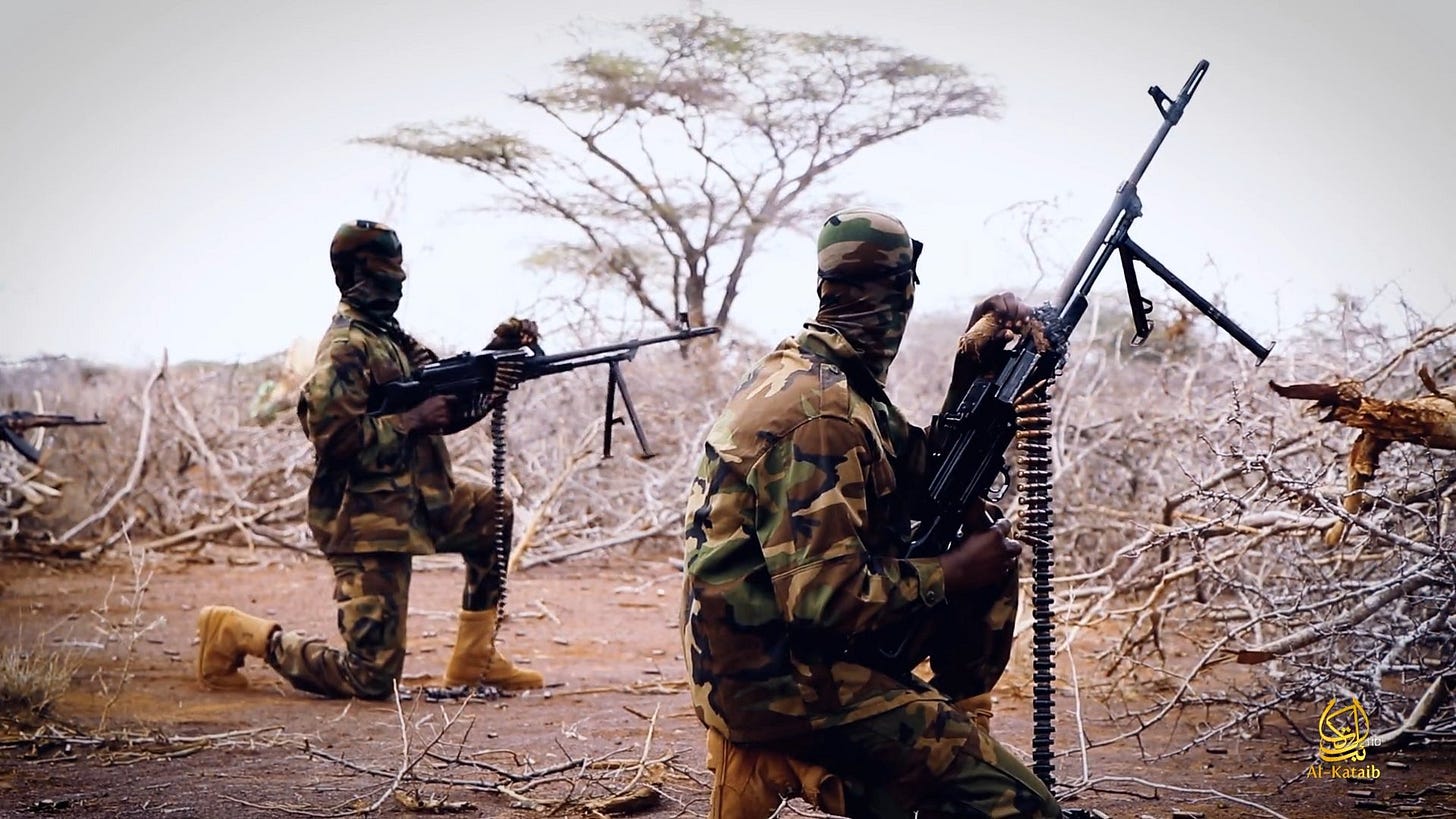MW Weekly: US Airstrike in Somalia; Greece-Turkey Tensions Flare; Jihadist Threat to Togo and Benin Rises
US Conducts Rare Airstrike Against Al-Shabaab in Somalia
US Africa Command (AFRICOM) published a statement detailing an American airstrike against al-Shabaab forces in Libikus, Somalia on July 17. It is reported that two militants were killed and that no civilians were injured.
AFRICOM concluded the media release by asserting that “violent extremist organizations like al-Shabaab present long-term threats to Somali, regional and US interests.”

American airstrikes in Somalia have been relatively infrequent since US President Joe Biden authorized the redeployment of several hundred ground forces to the country to target al-Shabaab leadership figures — a reversal of the previous administration’s order to withdraw most US troops from the country. The last recorded US airstrike inside Somalia was in June and in February before that.
One standout aspect of the statement is AFRICOM’s heavy emphasis on the operation having avoided civilian casualties. On this, Jonathan Schroden, Director of CNA’s Countering Threats and Challenges Program, notes how:
Congress—in part as a continuing trend of interest and in part as a result of focused media attention on the issue—has been pushing DOD to do better at preventing civilian harm, especially from counterterrorism air strikes. The length to which AFRICOM went in its press release to convey its confidence in having not caused any civilian casualties suggests the command is sensitive to that oversight.
The Biden administration faced considerable backlash on this front when, on August 29, 2021, the US conducted a drone strike intended for Islamic State militants in Afghanistan but, instead, killed at least ten civilians, including seven children.
Turkish Map Angers Greece
On July 9th, in the latest incident fuelling tensions with Greece, a high-ranking Turkish politician and MP, Devlet Bahçeli, published a photograph of himself and another man holding a large framed revanchist map of the Eastern Mediterranean.
The map shows a dramatically diminished Greece in which its largest Aegean Islands are depicted as Turkish territory, and Greece’s maritime boundary is reduced by about 50%. Outraged, Greek Prime Minister Kyriakos Mitsotakis tweeted in response to the photo: “Take a good look at this map. Crete, Rhodes, Lesvos, Chios, Samos all consumed by Turkey. Α fever dream of extremists or Turkey’s official policy? Another provocation or the true goal?” He added, “President Erdogan must make his position clear on his junior coalition partner's latest antics,” referring to Bahçeli.
Diplomatic relations between Greece and Turkey have been deteriorating at an alarming rate over the past decade. Points of contention between the two NATO allies include the movement of refugees and irregular migrants from Turkey into Greece as a transit nation to western EU countries, Turkish hydrocarbon exploration within the UNCLOS-recognized exclusive economic zone of Cyprus, and the 2016 failed coup d’état in Turkey—after which Turkey has continued to accuse Greece of harboring coup plotters and affiliates of militant groups hostile to Turkey such as the PKK.
Also at issue and a major complaint of Greece are the nearly daily Turkish violations of Greek airspace, claiming 2,377 overflights of Turkish military aircraft ignoring Greek NOTAMs while over Greece’s Aegean Islands in the first half of 2022 alone. A massive uptick from previous years.
Members of US Congress are seeking to make sales of F-16 multirole fighter aircraft to Turkey conditional, relying on both the Biden administration’s ability to prove a genuine national security need for arms sales/transfers to Turkey and somewhat murky guarantees that the aircraft will not be used in further violations of Greek airspace. Turkish President Reçep Tayipp Erdoğan, however, says that these conditions are not binding, and yet another airspace violation occurred on Tuesday, July 18th.
US Secretary of Defense Lloyd Austin III “intends to contact his Turkish counterpart, Hulusi Akar, in the coming days over the tensions in Aegean,” according to Greek daily Kathimierini.
Threat to Togo/Benin Northern Borders
Over the past few months, militants have become more active in and near littoral West African states that have historically experienced low jihadist activity. Security concerns have been growing about the integrity of Benin and Togo’s respective northern frontiers as Islamist insurgents conduct a growing number of cross-border raids. Both governments seem to face security force capacity limitation issues, with their borderlands vulnerable to incursion and attack.
The resultant encroachment anxiety seems to have factored into a recent grievous error when, just last week, Togo launched an airstrike that ended up killing seven civilians, including teenagers. Further fuelling this tense atmosphere, recent jihadist raids in Togo killed almost 30 people across five villages, while there was a separate improvised explosive device (IED) attack against security forces around this time.
On regional geography, James Barnett, a Nigeria-based researcher and non-resident fellow at the Hudson Institute, notes that the “north of Benin in particular largely consists of large forest reserves with lower population density and limited security presence” which make it “pretty easy then for jihadists to hop from Burkina Faso or Niger into northern Benin.” He adds that “jihadists, the al-Qaeda-linked JNIM in particular, are feeling more emboldened or at minimum feeling that the conditions are favorable for a southward expansion of their insurgency.” Barnett assesses the recent spike in activity seemingly indicates that “jihadist militants, particularly those belonging to JNIM (al-Qaeda’s Sahelian branch), have shifted from using Togo and Benin primarily as transit points and have begun efforts to instigate proper insurgencies in each country.”
Laith Alkhouri, the founder and CEO of Intelonyx Intelligence Advisory, explains that “both [Togo and Benin] are in critical need of security training and equipment, including surveillance drones and thermal cameras, enhancement of border patrols, and advanced counterterrorism training.”
Looking ahead, Alkhouri says the future threat environment “depends on multiple circumstances, including the security readiness at the borders, the circumstances in Burkina Faso, the amplification of efforts versus the rewards for militant groups, and international security assistance programs.” However, he warns, “should we witness an uptick in attacks and casualties while faced with the security status quo, the situation could deteriorate rapidly.”
Conflict Photos of the Week




New Articles by Our Writers
• Islamic State in Khorasan Province Exploits Tajik Martyrs for Online Recruitment in Central Asia - Lucas Webber
• Remembering 17N's Assassination Attempt on Finance Minister Ioannis Palaiokrassas, July 1992 - Tom Lord
• Islamic State launches new Tajik propaganda network - Lucas Webber and Laith Alkhouri
What We Are Reading
• “The ICC International Maritime Bureau’s (IMB) latest global piracy report details 58 incidents of piracy and armed robbery against ships - the lowest total since 1994 - down from 68 incidents during the same period last year. In the first six months of 2022, IMB's Piracy Reporting Centre (PRC) reported 55 vessels boarded, two attempted attacks and one vessel hijacked.”
• “The People’s Liberation Army (PLA) believes that logistics support is one of the key determinants of a successful large-scale invasion of Taiwan. Logistics support includes transport, materiel and oil supply, medical care, search and rescue, logistics infrastructure protection, and maintenance of war materiel reserves. Despite the recognized importance of logistics support, it is likely the PLA does not currently possess the requisite logistics capabilities to successfully support a large-scale amphibious landing on Taiwan and a possible protracted conflict involving the United States and allies.”
• “The U.N. human rights office on Saturday expressed concern about rising violence around Haiti’s capital, saying 99 people have been reported killed in recent fighting between rival gangs in the Cite Soleil district alone. The warning came hours after the U.N. Security Council unanimously approved a resolution renewing the mandate of a U.N. office in the troubled Caribbean nation and calling on all countries to stop the transfer of small arms, light weapons and ammunition to anyone there supporting gang violence and criminal activity.”
• “A ghost town since a 2018 operation to flush out jihadists, Hajar al-Aswad near the Syrian capital has come back to life as the location of a Jackie Chan-produced action movie. "Home Operation" is inspired by China's 2015 evacuation of Chinese and other foreign citizens from the war in Yemen, an operation that was seen as a landmark for Beijing. Yemen was deemed too dangerous a venue to shoot and some scenes of the film, which is also backed by an Emirati production company, are being shot in Syria, although the script only mentions a fictional country called "Poman".”
• “Russia Sends Pacific Island ‘Machine Gun Artillery Division’ To Ukraine: A video posted in the aftermath of the failed July 15 attack, showed troops from Ukraine’s 81st Air Assault Brigade and the National Guard’s Omega special forces detachment recovering a unit patch from several dead Russian soldier. The patch, sporting the crossed barrels of a World War I vintage Maxim machine gun and old-fashioned cannons, had a curious story to tell: it was the emblem of the 18th Machine Gun and Artillery Division (MGAD), the only units of its kind in the Russian military and a seeming throwback to the World Wars.”
Enjoy the weekend!







